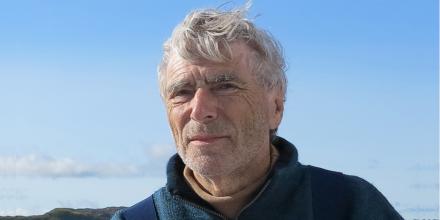Greeting from the Australian National University in Canberra, where Professor John Broome is speaking on "Ethics in the IPCC process" at the Centre for Climate Economics and Policy.
Professor Broome explained how the International Panel on Climate Change (IPPC) is an independent scientific organization, but taken notice of by the UNFCC, which is the relevant treaty organization on climate change. The IPCC has three working groups on science (WG1), impacts (WG2) and mitigation (WG3) of climate change. The main reports are the equivalent of 5,000 pages and there were 143,000 comments received.
Professor Broome went to 13 meetings of 4.5 days each and worked out he was responsible for a considerable amount of carbon emissions just commuting to the meetings. ;-)
The scientists are volunteers, not paid by their work. He commented that the structure of the reports had already been decided. The recommendations are checked word by word. There were two moral philosophers included. Professor Broome wrote on "Justice, equity and responsibility" (3.3, page 12) and Professor Lukas Meyer, Graz University, Austria on "Values and wellbeing" (3.4 page 20).
Professor Broome commented on the differences between the scientific authoring approach and that of philosophers (Aristotle never wrote any refereed papers). The philosophers wrote on justice and value, which the scientists accepted, eventually. Also he commented on how the scientists and other academics wrote the detail of the reports, but there was government and political input into summaries (which is all anyone reads anyway).
I have some experience of the process of developing international standards, but not on this scale. Also I have been working recently with educators who come from the social science and have a different outlook on the world to the "hard" sciences.
Professor Broome described how the final drafts were produced with the text on the screen using Microsoft Word track changes, color coded with changes. Controversial sections are sent to a smaller "contact group" in the case of the philosopher's section taking three and half pages for three pages of text. He described how other sections got cut down due to lack of time and people.
What I found most surprising about Professor Broom's presentation was that he was generally positive about the outcome of the IPCC process. This is despite at one point describing how Saudi Arabia attempted to have a graph "censored" from the report, as it showed how the rich nations had caused the global warming problem. The Netherlands delegate attempted to outmaneuver this by having another section inserted (but the Netherlands government was un-contactable and so their delegate could not get approval).
Professor
Broome described how some national delegations were in continuous voice
contact with their experts at home and sending screen captures, taking
instructions. If the process is to not be put on-line, then this
practice should be banned, as it is inequitable. However, it would be
better to put the whole process on-line.
If the IPCC is not willing to put their process on-line, then this could be done by volunteers. If the secretariat was not willing to cooperate, then volunteers amongst the delegates could transmit the video and audio from the meeting room. This could then be distributed publicly on-line and real time discussion rooms of experts, national representatives and the general public could debate the issues and make recommendations to the delegates.
It strikes me the IPCC process is similar
to an open outcry auction system, as previously used for commodity
trading. Such systems have mostly been replaced by on-line computer
based systems, which are more efficient and by having a lower
transaction cost, more equitable. The IPCC process excludes most of the
people in the world from participating, because they cannot afford to
attend the meeting.
If the IPCC is not willing to put their process on-line, then this could be done by volunteers. If the secretariat was not willing to cooperate, then volunteers amongst the delegates could transmit the video and audio from the meeting room. This could then be distributed publicly on-line and real time discussion rooms of experts, national representatives and the general public could debate the issues and make recommendations to the delegates.

No comments:
Post a Comment